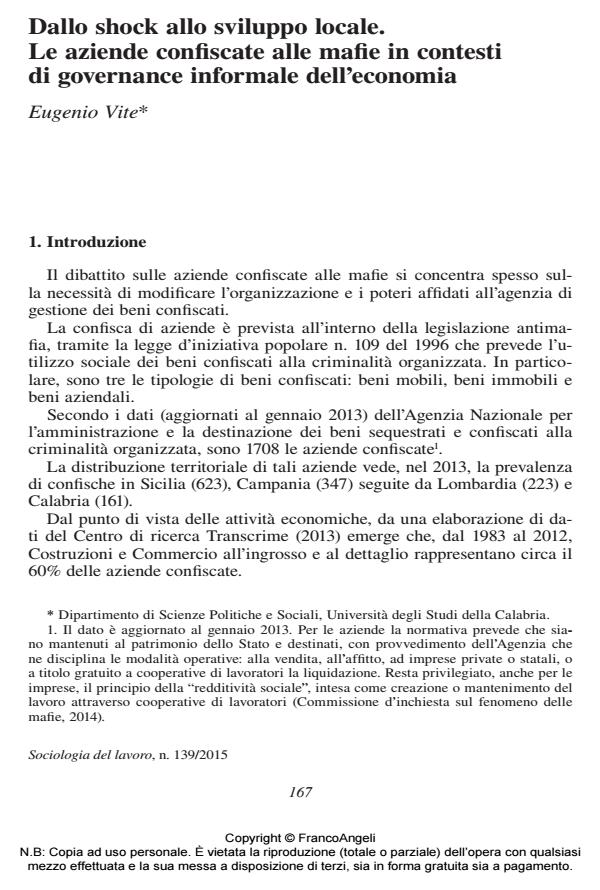From shock to local development. The confiscation of the assets of criminals in contexts of informal governance of economy
Journal title SOCIOLOGIA DEL LAVORO
Author/s Eugenio Vite
Publishing Year 2015 Issue 2015/139
Language Italian Pages 12 P. 167-178 File size 100 KB
DOI 10.3280/SL2015-139013
DOI is like a bar code for intellectual property: to have more infomation
click here
Below, you can see the article first page
If you want to buy this article in PDF format, you can do it, following the instructions to buy download credits

FrancoAngeli is member of Publishers International Linking Association, Inc (PILA), a not-for-profit association which run the CrossRef service enabling links to and from online scholarly content.
Aim of paper is to dynamically observe how firms interested to the confiscation of the assets of criminals mobilize internal available resources in response to changes from the context, as well as the main consequences in terms of governance of local economy. The firms in this study went through a radical change. Although none of these companies have ever produced illegal goods, they are embedded in processes of transition from a criminal context to a legal one. Those processes highlight how stakeholders involved in the examinate successful case (Calcestruzzi Ericina Libera) correspond to those typical of governance of local economy. The author observes, furthermore, how companies concerned may be connected in a positive social relations system, able to produce collective competitive goods.
Keywords: Informality, governance, local economy, SMEs, labour sociology, local development
Eugenio Vite, Dallo shock allo sviluppo locale. Le aziende confiscate alle mafie in contesti di governance informale dell’economia in "SOCIOLOGIA DEL LAVORO " 139/2015, pp 167-178, DOI: 10.3280/SL2015-139013